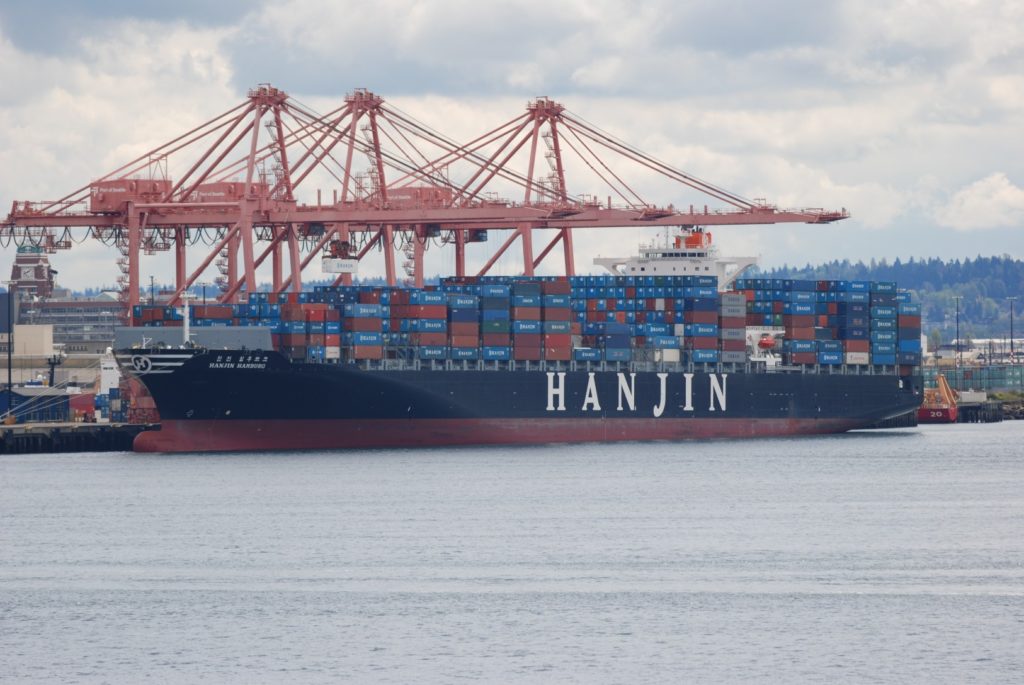The Peninsula
Will the Trump Administration's Policies Have a Negative Impact on the Korean Economy?
Published January 3, 2017
Category: South Korea

By Jaeho Jeon
After the U.S. presidential election, many experts were concerned about the policies of the new U.S. administration and how they might affect East Asia and the Korean economy in particular. As the inauguration of President-elect Donald Trump approaches, those concerns are growing as a result of actions taken by President-elect Trump during the transition that could indicate heightened tensions between his administration and China.
President-elect Trump repeatedly argued during the campaign that the United States was getting a bad deal in its trade with China. He stressed that, if elected, he would impose a tariff of up to 45 percent on Chinese imports unless the U.S. received a better deal. However, if the U.S. imposes a high tariff on Chinese imports; China is likely to immediately retaliate, perhaps precipitating a trade war.
Since the election, President-elect Trump has taken steps to revamp U.S. trade policy. He recently announced plans to create a National Trade Council (NTC) inside the White House and has chosen Peter Navarro, a UC Irvine professor, to serve as the chair. Professor Navarro, the author of ‘Death by China’ and ‘Crouching Tiger: What China’s Militarism Means for the World’, has criticized the trade imbalance with China and has argued for a strong response. Having promised to protect manufacturing jobs in the U.S. by preventing unfair trade practices by China during the campaign, along with the appointment of Professor Navarro by President-elect Trump as chairman of NTC, can be interpreted as indicating a willingness to implement the China-related pledge.
However, significant and sustained trade tensions between the United States and China could have a negative impact on the Korean economy. The U.S. and China are major buyers of Korean products. If a U.S-China trade wars begins and the trade between the two countries is reduced, South Korea, which is highly dependent on exports to both countries, will suffer considerable damage. According to the Korea Trade Statistics Promotion Institute, Korea’s exports to China amounted to $ 131.7 billion in 2015, 26 percent of total exports. The amount of export to the U.S. was $ 69.8 billion, or 13.3 percent of the total, and second only to China.
In 2015, 65.3 percent of Korea’s exports to China were processed locally and re-exported to other countries such as the United States. The re-export products are mainly tele-communication devices such as mobile phones, computers, and textiles. According to the Bank of Korea, if China’s exports to the U.S. decline by 10 percent, Korea’s total exports are estimated to decline by 0.36 percent. In 2015, that would have meant decline in Korean exports of almost $2 billion.
The fact that Trump is expected to strengthen protectionism is also negative for the Korean economy. The U.S. had increased trade pressure on Japan from the end of 1980s to the early 1990s, saying Japan’s trade surplus was excessive. Korea’s trade surplus with the U.S. has also increased significantly from $ 11.6 billion in 2011 to $ 25.8 billion in 2015. If the U.S. pressures Korea on trade, Korean exports to the U.S. are likely to decline.
Another consideration is whether the U.S. will name Korea a currency manipulator. President-elect Trump has vowed to name China a currency manipulator on his first day in the White House. Under U.S. law, the Treasury Department can name a country that meets three conditions a currency manipulator. The three conditions are that a country’s trade surplus with U.S. exceeds $ 20 billion, the current account surplus exceeds 3% of GDP, and there is persistent one-sided intervention in the foreign exchange market. While China meets one condition, Korea meets two. If Korea is named a currency manipulator, there could be various trade sanctions put in place such as restricting participation in the U.S. procurement market.
Of course, there is an analysis that Trump’s election will help the Korean economy in the short term. Trump mentioned that he would push for various stimulus measures such as $ 1 trillion in infrastructure investment and massive tax cuts. If the U.S. economy improves, it will help the Korean economy. According to the analysis of Hyundai Research Institute, if the U.S. economic (GDP) growth rate increases by 1 percentage point, Korea’s economic growth rate is estimated to rise by 0.4 percentage points due to the increase in exports.
However, it is difficult to jump to a conclusion that the economy will be revitalized because President-elect Trump has no specific policy yet. Recently, there have been indications that Trump may withdraw his infrastructure pledge having said that infrastructure investment will not be a “core” part of the first few years of his administration in an interview with The New York Times.
Uncertainty is one of the things the economy hates most. Although Trump is unlikely to pursue extreme trade policies, Korea’s export environment will be in a difficult situation for the time being.
Jaeho Jeon is a reporter at ChosunBiz and a visiting fellow at the Korea Economic Institute of America. The views expressed here are the author’s alone.
Photo from A McLin’s photostream on flickr Creative Commons.
